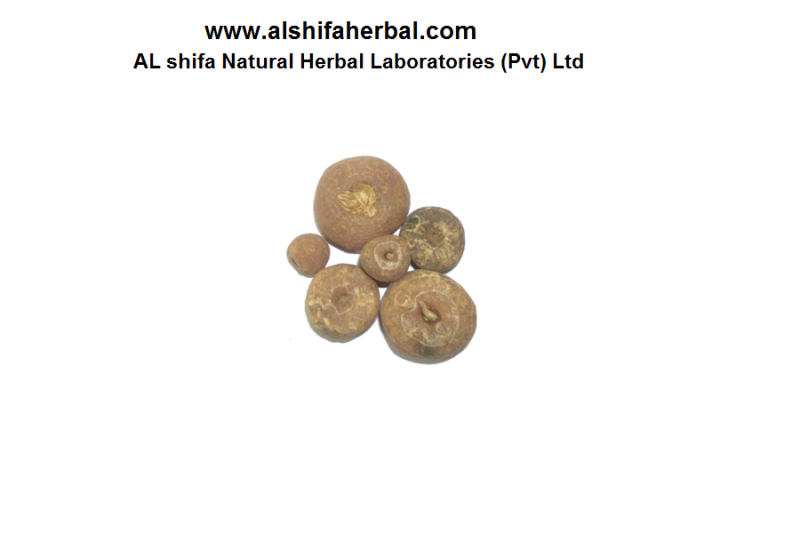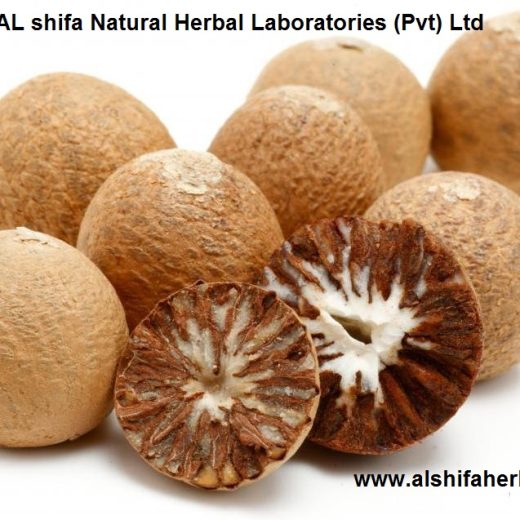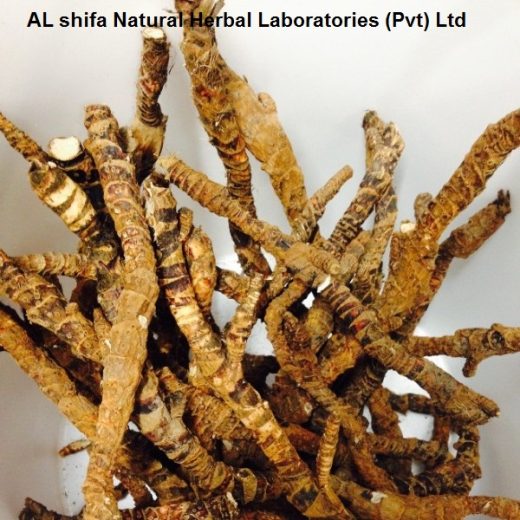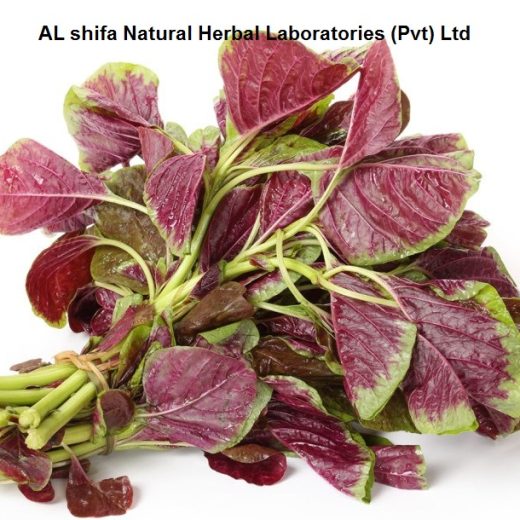The name is derived from the Greek ‘aristos’ (noblest) and ‘locheia’ (childbirth). The root and rhizome are acrid, alterative, anodyne, antibacterial, antifungal, antiinflammatory, antiseptic, antitussive, aromatic, carminative, diaphoretic, diuretic, emmenagogue, expectorant, febrifuge, hypotensive, stomachic, stimulant, thermogenic, tonic and uterine stimulant. Has a long history of use in childbirth in promoting uterine contractions during labour and for removing obstructions after childbirth. Also used for menstrual problems, cough, asthma, intestinal worms, rheumatism and gout.
The root contains aristolochic acid. This has anticancer properties and can be used in conjunction with chemotherapy and radiotherapy. Aristolochic acid can also be used in the treatment of acute and serious infections such as TB, hepatitis, liver cirrhosis and infantile pneumonia. It also increases the cellular immunity and phagocytosis fusion of the phagocytic cells.
Recommended Dosage
3 to 5 g powder.
Contraindication
This herb is contraindicated during pregnancy or lactation. Also contraindicated in asthma due to its bronchoconstrictive effects. Toxic dose for humans is 8 to 10 g of the drug.
Botanical Classification
|
|
|
Kingdom
|
Plantae
|
|
Division
|
Magnoliophyta
|
|
Class
|
Magnoliopsida
|
|
Order
|
piperales
|
|
Family
|
Aristolochiaceae
|
|
Genus
|
Aristolochia
|
|
Species
|
indiaca
|
|
|
|
Family
|
|
Botanical – Aristolochiaceae Ayurvedic – ishwari kul |
Habitat
|
|
| It is found in Nepal, south Indian states, Bengal and Srilanka. It is generally seen up to 3000 feet height. |
Morphology
|
|
| A perennial shrubby glabrous twiner with a long woody root- stock; leaves simple, alternate, short-petioled, entire with somewhat undulate margins; flowers greenish white or light purplish in axillary cymes or fascicles with swollen or inflated basal part, contracted middle part and narrowly funnel-shaped distal part; fruits rounded or oblong or hexagonal, septicidal 6-valved capsules opening from below upwards: seeds flat, winged. |
Chemical Constituents
|
|
| The root of Indian birthwort contains aristolochin, iso aristolochic acid allanttoin. It contains aromatic oils that are 0.5% and contains sesqiterpenoid. Besides these it contains certain alkaloids and minerals like calcium and magnesium. |
Pharmacology
|
|
| It is used in disorders caused by vata and kapha vitiation. It helps in reducing inflammation, infections, poisoning, arthritis and pains. It is also used in psychotic problems. It improves digestion and prevents abdominal problems. It removes work=Malayalam infestation from the body. It strengthens the heart muscles= and is also used in respiratory disorders. It is also effective during labor pains. It helps in menstrual diturbences. It also prevents fevers and also helps in string bites by animals like snakes, scorpion, mouse, spider etc.
According to ayurveda it contains
- properties – (light) and (dry)
- taste (bitter) (pungent) (astringent)
- (potency) (hot)
|
Toxicology
|
|
| No toxic effect was seen on human body with its consumption |
Plant part used
|
|
| Roots, leaves |
Indication
|
|
- Poisoning
- Arthritis
- Inflammation
- Indigestion
- Heart related problems
- Uterus related ailments
- Fever
- Dysurea
- Skin diseases
- Menstrual disturbances
|
Uses
|
|
| The root is pungent, bitter; alexiteric; emmenagogne; useful in “tridosha”, pains in the joints, bowel troubles of children (Ayurveda). The seeds are tasteless; useful in inflammations, biliousness, dry cough, joint pains, dyspnoea of children; purgative. The plant is good for snake-bite(Yuani). The root, which is very bitter, is held in much esteem as a stimulant, tonic, and emmenagogue, and is employed in intermittent fevers and other affections. In Bombay, it is chiefly prescribed in the bowel complaints of children; and in cholera it is regarded as a stimulant tonic, and is also applied externally to the abdomen. The juice of the fresh leaves is very useful in the croup of children, by inducing vomiting, without causing any depression. The plant is used as an abortifacient. It is as an antidote to snake-bites, however, that it has obtained Most repute, and by the early Portuguese settlers was termed Raiz De Cobra, irom its supposed efficacy in those cases even in the bite of the Cobra de Capello. It seems to be, however, more used by the native Madras Physicians for snake-bite than in the Deccan or Konkan. In the Philippine Islands, the bitter nauseous root is the most popular remedy for poisonous bites and stings. It is largely used in intermittent fevers as an emmenagogue and tonic and is given to children for flatulence and in dyspepsia. It is recommended for all kinds of intestinal disorders. In Tamil country, the vaidyans use this drug in malarial {even. The juice of the leaves of the plant is said to be a specific antidote for cobra poisoning. The root is also used for the same purpose. The powdered root is given in honey for leucodenna. A decoction of the roots of this plant was given to cases of malarial fever, the result was unsatisfactory (Koman). The root, stem, and leaves are recommended for the treatment of snake-bite , Ainslie, Rheede, Robeite) and scorpion-sting ; but they are all useless in (he antidotal and symptomatic treatment of snake-bite (Mhaskar and Caius) and scorpion-sting (Caius ). |
AL shifa Natural Herbal Laboratories (Pvt) Ltd








Reviews
There are no reviews yet.